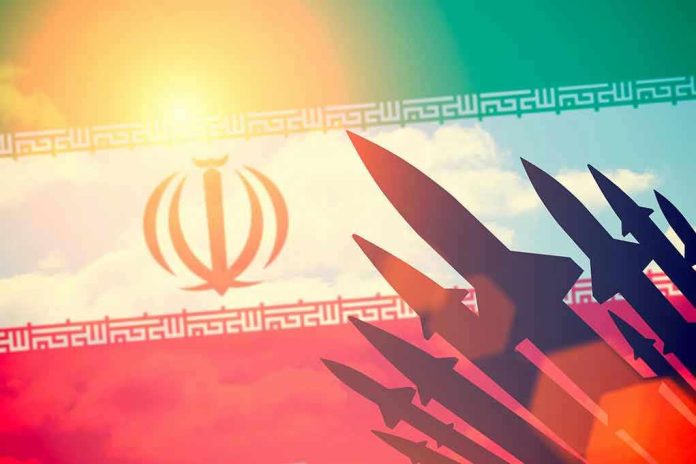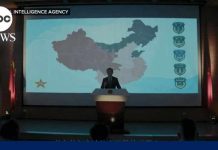
The president of Iran claims Israel tried to assassinate him during the recent 12-day war, and now the world is left to wonder just how far this dangerous game of Middle East brinkmanship will go before someone lights the fuse for real.
At a Glance
- Iranian President Masoud Pezeshkian accuses Israel of attempting to assassinate him during the June 2025 conflict.
- The allegation follows a brutal 12-day war that left over 900 dead in Iran and 28 in Israel.
- Iran’s nuclear talks with the U.S. are currently stalled, with Pezeshkian demanding guarantees against further Israeli attacks.
- No independent confirmation of the alleged assassination attempt has emerged; Israel maintains silence.
Allegation of Assassination Attempt Rocks Already Fractured Middle East
Iran’s newly-elected president, Masoud Pezeshkian, has just lobbed a grenade into the diplomatic minefield that is the Middle East. On July 7, Pezeshkian went public, accusing Israel of attempting to assassinate him during a meeting in the midst of the 12-day war between the two nations. According to his account, Israeli forces targeted a specific location where he was convening with top officials, narrowly missing their mark. While the world’s media feasts on the drama, Israel’s government is—predictably—keeping its lips zipped, neither confirming nor denying the claim. Welcome to the new status quo of “strategic ambiguity,” where one side shouts and the other just smirks in the shadows.
This isn’t just another round in the endless game of tit-for-tat between Iran and Israel. The alleged assassination attempt comes hot on the heels of an Israeli air campaign that killed Iranian commanders and nuclear scientists, supposedly to keep Iran’s nuclear ambitions in check. If you’re counting, the conflict left more than 900 dead in Iran and 28 in Israel. These are not just numbers—they’re the direct, brutal cost of leadership that sees war as a solution, not a last resort. And while the bombs have stopped falling (for now), the fallout is only just beginning.
Diplomacy on Ice as Tensions Escalate
Let’s not forget, the whole reason for the Israeli offensive was to kneecap Iran’s nuclear program and, not-so-coincidentally, to derail nuclear talks between Tehran and Washington. Those talks—supposedly the key to preventing nuclear proliferation—are now in limbo. Pezeshkian has said he’s willing to come back to the table, but only if the United States can guarantee Israel won’t try to take him out again. Because nothing says “trust-building” quite like a request for basic survival. The United States, for its part, is doing its usual dance: playing mediator while pretending not to hear the thunder of Israeli jets overhead. The result? A diplomatic stalemate that helps nobody—except maybe those who profit from chaos.
The timing of the Israeli strikes—just two days before the planned nuclear talks—suggests a deliberate strategy to torpedo diplomacy in favor of military “solutions.” And who pays the price? Regular people in both countries, whose lives and livelihoods are shattered in the crossfire. Meanwhile, the so-called “international community” wrings its hands, issues statements, and does precisely nothing meaningful to stop the cycle. But if you’re surprised by that, you clearly haven’t been paying attention to how global governance works these days—or doesn’t.
A Pattern of Escalation and Denial—With No End in Sight
This is hardly the first time Israel has been accused of targeting Iranian officials. The Jewish state has spent years picking off nuclear scientists and military leaders, always with the same plausible deniability. And why not? It works. Iran gets the message, the world shrugs, and the cycle continues. But this time, the stakes are higher. Pezeshkian is new to the job, facing the impossible task of projecting strength for his own people while begging world powers for basic security. Israel, meanwhile, is doubling down on its “no comment” strategy, which—let’s be honest—sounds an awful lot like a confession when the evidence keeps piling up.
Analysts warn that if the assassination attempt is confirmed, it would mark a dangerous escalation even by the warped standards of Middle Eastern geopolitics. It risks pulling the region into broader conflict, especially if Iran decides that “strategic patience” is no longer in its interest. The risk of nuclear proliferation grows with every failed diplomatic effort, and trust between all parties erodes a little more each day. But don’t expect the experts in Washington, Brussels, or anywhere else to actually fix the problem. They’re too busy issuing statements and holding summits while the world burns.




